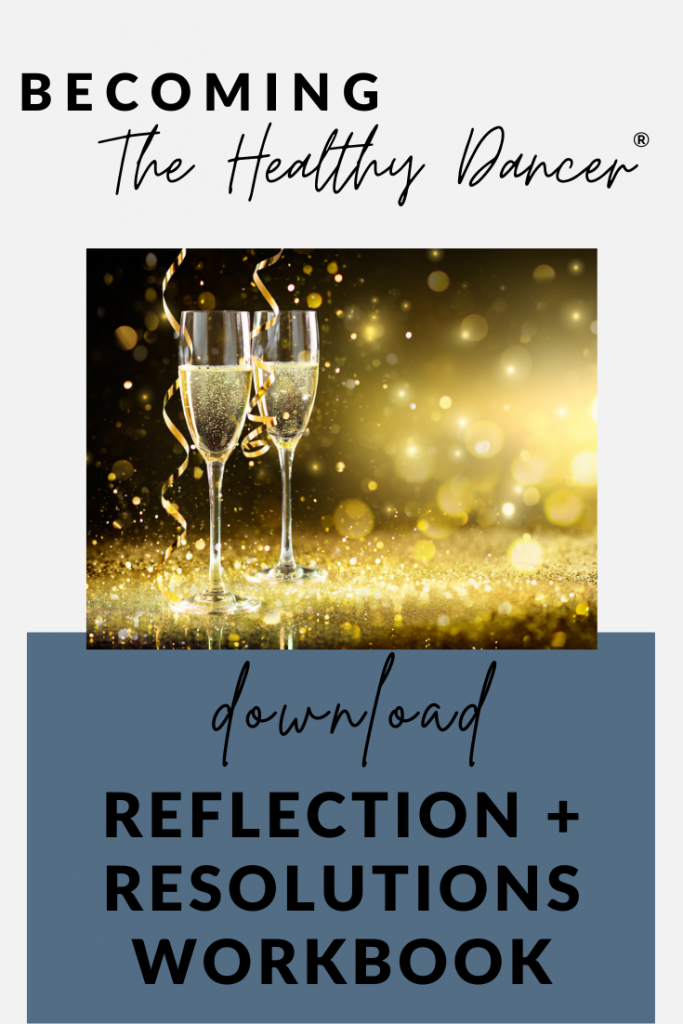As we step into a new year, it’s hard to avoid the pull of New Year’s Resolutions. After the whirlwind of the holiday season, with its ups, downs, and (hopefully) delicious meals, it’s natural to reflect on the past year and think about how we can improve in the year ahead. But before diving into any resolutions, let’s pause to consider how we want to approach them.
Now, before you keep reading, don’t forget to scroll down for a FREE workbook on how to create lasting resolutions that align with your true goals!
Why is January different?
This time of year, the pressure from diet culture is especially loud. The 72-billion-dollar diet industry floods us with messages about needing to “improve” our bodies and our eating habits, pushing us to adopt unrealistic food and body goals. This is what I call “diet poaching season”— a time when we’re especially vulnerable to the harmful idea that we need to change ourselves to fit a narrow, market-driven standard. The truth is, diet culture rarely leads to lasting change and can contribute to cycles of weight fluctuation that harm both our bodies and minds.
We know that diets don’t work long-term and that weight cycling has negative health consequences. So this year, let’s shift the focus away from restrictive eating and unrealistic body goals, and instead embrace resolutions that nurture our well-being, foster self-compassion, and build a healthier relationship with food and our bodies.
I’ve previously shared three actionable tips for creating sustainable resolutions. Be sure to check them out, and also take a look at this post on why the idea of “getting back on track” can be harmful.
Now, let’s dive into some of my favorite New Year’s resolutions to start the year in a way that supports you. But before we get into the list, I want to encourage you to make a conscious decision to reject diet culture. This year, focus on healing your relationship with food and body, and prioritize mental, physical, and emotional well-being.
Non-Diet/Food
- I will identify and label unhelpful food thoughts. I’ll notice when these thoughts arise and try to pinpoint what triggers them, so I can challenge and diminish them. (Need help? Here’s a guide.)
- I will include “off-limits” foods in my routine. I will incorporate foods I’ve previously deemed “bad” or “unhealthy” to start breaking free from my food rules. (Want more ideas? Here’s a starting point.)
- I will embrace discomfort as part of the process. Breaking food rules can be challenging, but I will trust that discomfort is often a natural part of the journey.
- I will give myself unconditional permission to eat. I’ll allow myself to enjoy all food, even those deemed “unhealthy” or less “clean” at any time, not just on specific “cheat” days. (Here’s why this matters.)
- I will work through food guilt. I’ll practice recognizing and addressing guilt around food choices. (Here’s how you can start.)
- I will carve out time for mindful eating. At least three times a week, I will slow down and focus on the experience of eating. (Here’s a mindfulness guide.)
- I will experiment with meal satisfaction. I will pay attention to how full or satisfied I feel after eating, and adjust my habits accordingly. (Need tips? Here’s how.)
- I will pack snacks more often. Keeping nourishing snacks on hand helps me feel prepared and supported throughout the day. (Need ideas? Here are my favorites.)
- I will eat more to think less about food. When I eat enough, I reduce the obsession with food, and can focus more on other aspects of my life.
- I will practice gentle nutrition. When possible, I will check in with my nutrition habits without becoming obsessive or perfectionistic. (Here’s how to approach it gently.)
Body and Self
- I will identify and challenge negative body image thoughts. I will notice when these thoughts arise and try to dismantle them with kindness and self-awareness. (Here’s how.)
- I will stop pressuring myself to always feel body positive. Some days it’s enough to simply feel neutral or accepting of my body. (Here’s why this is important.)
- I will neutralize negative self-talk. Instead of self-criticism, I’ll practice self-appreciation and body respect.
- I will donate clothing that no longer fits. This can be a difficult step, but I will giveaway clothes and leotards that no longer serve me and embrace my evolving body.
- I will prioritize joyful movement. Rather than focusing on prescriptive exercise, I’ll explore mindful movements that bring me joy.
- I will value restful moments. Whether it’s reading, meditating, or simply doing nothing, I’ll embrace rest and give myself permission to take breaks.
Relationships
- I will create healthy boundaries with myself. I’ll honor my needs and limit over-commitment to preserve my energy. (Here’s how.)
- I will honor boundaries in my relationships. I will respect the boundaries of others, and assert my own as needed.
- I will detox my social media feeds. I will unfollow accounts that don’t support my well-being or that perpetuate dancer diet culture.
- I will nurture supportive relationships. I will focus on connecting with people who make me feel heard, validated, and supported.
- I will practice saying no. Since I’m someone who tends to take on too many tasks at one time, I will practice setting limits and honoring my capacity.
- I will incorporate deep breathing. Especially during stressful moments, I’ll use deep breathing to center myself and manage anxiety.
Environment
- I will focus on intentions rather than consumption. I’ll buy less and participate more in meaningful activities.
- I will consider sustainable fashion. I’ll make more mindful clothing choices to reduce waste and support ethical production practices. (Learn more here.)
- I will add non-dance hobbies to my routine. Whether it’s reading, knitting, or baking, I’ll make time for hobbies that bring me joy and relaxation.
- I will limit screen time, especially before bed. I will create healthier boundaries with technology to improve my sleep and well-being.
As you create your own resolutions, try to approach them with a sense of flexibility and self-compassion. Rather than using all-or-nothing language like “I must” or “I will never,” try framing your resolutions with a neutral tone: “When possible, I will try to…”
The goal is not perfection, but progress. Start small, stay curious, and above all, be kind to yourself this year.





